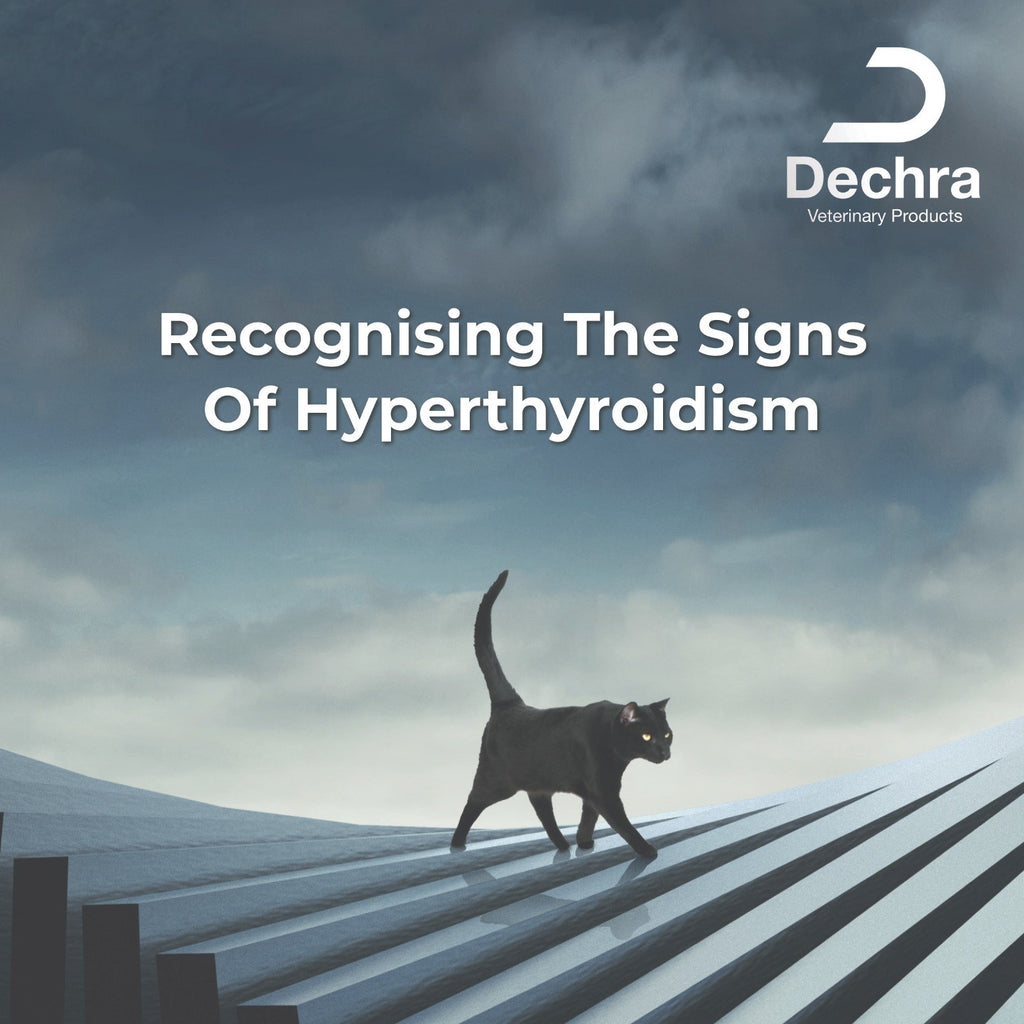FELINE HYPERTHYROIDISM

Hyperthyroidism is a medical condition that results from the overproduction of thyroid hormones by the thyroid gland. The thyroid gland is located on both sides of the windpipe (trachea) and is responsible for producing thyroid hormones. In hyperthyroidism, one or both lobes of the thyroid gland become enlarged, leading to the overproduction of thyroid hormones. The reason for this change in the thyroid gland is not fully understood, but in 98% of cases, the enlargement is benign. However, in the remaining 2% of cases, the enlargement is due to a malignant growth of the thyroid gland.
What is the Common Signs?
Hyperthyroidism in cats can lead to serious medical problems. Some common signs of hyperthyroidism include:
- increased appetite,
- weight loss,
- increased fluid intake,
- frequent urination,
- restlessness,
- irritability,
- occasional vomiting,
- diarrhea, and an unkempt coat.

The Physical Examination and Diagnostic testing:
A physical examination may reveal palpable enlarged thyroid lobes in the cat's neck. Diagnostic testing, such as a blood test to measure levels of the T4 hormone, is necessary to confirm the diagnosis. And because hyperthyroidism is more common in older cats, it is however recommended to perform a comprehensive blood test and urinalysis to evaluate organ function and identify any underlying issues. Even though kidney disease is not directly related to hyperthyroidism, it frequently coexists in older cats. Performing these tests is crucial since other health conditions may hinder successful treatment of hyperthyroidism or even exacerbate the cat's condition.
The Treatment:
Medical management is recommended as the first step in treating feline hyperthyroidism. Methimazole is the anti-thyroid drug of choice, and it has been used successfully for more than 20 years. Dechra's FELIMAZOLE® (methimazole) Coated Tablets are the only FDA-approved treatment for veterinary use for managing hyperthyroidism. FELIMAZOLE Coated Tablets are available in 2.5 mg and 5.0 mg strengths, providing dosing flexibility and ease of administration.

Dose Management:
The recommended starting dose is 2.5mg administered twice daily, and the goal is to use the lowest possible dose to achieve and maintain euthyroidism. Note that your veterinarian will however discuss the recommended the precise dose management for your cat.
In Conclusion:
If you suspect that your cat may have hyperthyroidism, it's important to consult with your veterinarian right away. With proper management from your veterinary surgeon, your cat's hormone levels can be regulated and return to normal, restoring their balance, coordination, and confidence.Ignoring hyperthyroidism can be life-threatening for your feline friend, but with the appropriate treatment and care, the outlook is generally excellent. Therefore, it's crucial to seek professional help to diagnose and manage the condition as soon as possible.
